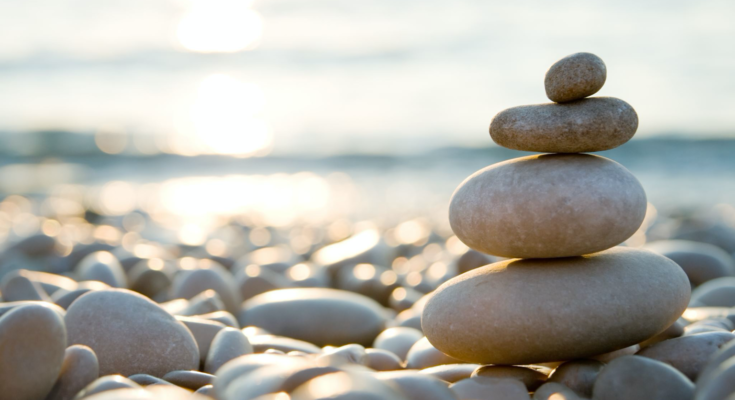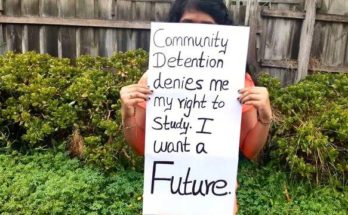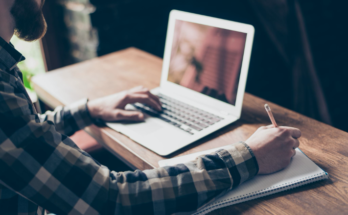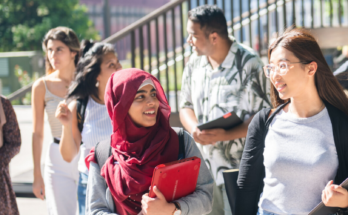Exploring Concepts of Well-being and Self-Care
IN THIS ISSUE
Message from the Chair – Dr Sally Baker
Collectively Considering Concepts of Well-being and Self-Care – Dr Rachel Burke
Resisting Self-Care, Self-Care as Resistance – Dr Maia Gunn Watkinson
“You have all the time in the world… to breathe.” – Bec Field
Experiencing ‘meaningful teaching and learning’ during COVID lockdown – Dr Julie Choi & Kailin Liu
Report: The inaugural Higher Degree Research Works-in-Progress Seminar, 2020 – Hanne Worsoe
Podcast and Videos on Refugee Employment and Well-being: How can we support them? – Ms Eun Su Lee & Associate Professor Betina Szkudlarek
Message from the Chair
By Dr Sally Baker
sally.baker@unsw.edu.au
Welcome to our final newsletter of the year and thanks to Rachel Burke for her fine work curating this excellent final word from the RESIG for 2020.
What a year! Did you survive or thrive (or most likely oscillate between the two)? Writing this in December 2020, it’s almost incredible to think of what we have collectively endured – often not evenly (thinking of our colleagues in Victoria who suffered through a long and arduous second lock down). And yet, it feels (optimistically, naively) like we have had some wins as we approach the end of this year. It feels, again optimistically and naively, like the ruptures caused by Covid are resulting in a greater disposition towards kindness, and that we are making meaningful moves towards a more progressive and caring future. Certainly in the space that we collectively work and advocate in, the news that The University of Queensland has established ten new fee-waiver scholarships for refugees on temporary visas and people seeking asylum is a boost that we all needed. Kudos to UQ for this incredible leadership – who would have thought that in this year of great lows we would end on such a great high. Epic respect and love for the persistent and courageous advocacy of many people who kept this issue on the agenda. This offers hope to us all!
The RESIG has had a surprisingly bumper year – testament to the collective goodwill and energy of our steering committee members – who give their time and energy (in particularly scarce supply this year!) – and our membership. We have launched our #StudentsLikeUs campaign (which we paused soon after the launch – thanks Covid! – but will revitalise in the new year), we have started a monthly reading group, we have established our Higher Degree by Research work-in-progress
seminar series (see below), and we have engaged in several advocacy projects, one of which is contributing to the idea of a higher education (durable) complementary pathway via community sponsorship.
We have also maintained our promise to produce open access resources via our excellent new-ish website (big shout out to John Tran who works tirelessly on this in his free time!), including our excellent scholarships database/ interactive map, our open access annotated bibliography (3rd edition) and our upcoming Australian Research on Refugee Integration Database (ARRID), developed in partnership with the University of Melbourne’s Social Equity Institute (to be launched in February 2021). We were also awarded our first collective research grant from the National Centre for Student Equity in Higher Education (we are still seeking participants – please look here if you might have time and interest before the end of February 2021, and please share this invitation to participate with colleagues and students).
Overall, we have achieved everything we set out to (and a little more) so a big pat on our collective backs! We have set a high bar for our future work, but we have big plans for next year (and especially for our 5th birthday on World Refugee Day next year). We couldn’t do this without you and the care and energy that you bring. We hope you all have a restorative and relaxing summer – taking the time to recharge batteries and reset boundaries and priorities after the brutality of this year – and we look forward to working with, for and alongside you all in the new year.
Take good care because it matters! 🙂
Collectively considering concepts of well-being and self-care
By Dr Rachel Burke, Newsletter Coordinator
Rachel.Burke@newcastle.edu.au
It has been a privilege to curate the thoughtful and poignant contributions featured in this edition of the RESIG newsletter. We chose the theme ‘Well-Being & Self-Care’ to acknowledge the unique challenges that our communities have faced in 2020.
Although the need for self-care is generally accepted and widely promoted, the concept itself is not often examined critically or through an activist/advocacy lens. Accordingly, we invited RESIG members to explore notions of ‘self-care’ and ‘well-being’ in ways that resonate with their experiences, values, and priorities, and those of the communities in which they live and work.
The beautifully written and illustrated contributions shared in this newsletter, and the conversations I have had with the RESIG members who authored these pieces, have prompted me to reflect on the value of collectively exploring issues of well-being.
I have been reminded that sharing our understandings of self-care in advocacy and activist contexts can help us to recognise and celebrate the diversities and commonalities in our experiences and perspectives, providing new insights into ourselves and each other.
Conversations about self-care may also help us to consider the well-being we seek to promote in our communities, in relation to our experiences with the structures and systems in which we live and work. Identifying connections, tensions, gaps, and

conflicts may offer new insights into our individual and collective experiences, and inspire us to imagine possibilities for healthier, more caring ways forward.
For me, these reflections are also important reminders that we – as individuals and communities – can work together to explore ways of conceiving of self-care and well-being that are personally meaningful, while challenging models and practices that may be at odds with our values and needs.
I express my warm thanks to the RESIG members who have generously shared their materials, podcasts and videos, information about recent and upcoming RESIG events, and personal reflections, despite (or perhaps because of) the turbulence and uncertainty generated by the events of this year. You have offered us valuable professional resources and insights into unexpected, creative, and personally restorative pathways to self-care and well-being for ourselves and our communities.
Resisting self-care, self-care as resistance
By Dr Maia Gunn Watkinson
m.gunnwatkinson@unsw.edu.au
I feel ambivalent about the term self-care. Wellness industries capitalise on the greater need for self-care in a time of overwork, job and financial insecurity, failing healthcare systems, and environmental crises. The approach to self-care at the two universities where I work in Sydney is no different from commercial corporations. They promote individualistic solutions to social problems.
Through numerous workshops and resources, self-care and mental wellness are framed as manageable by individuals. This idea of self-care as an individual responsibility diverts our attention away from the inequalities that shape our realities. Self-care becomes yet another aspect of personal life to ‘work on’. A kind of consumption: we burn up so we can replenish.
Yet there is nothing natural about this commercialised and consumption-driven type of self-care. No amount of breathing exercises or yoga will fix systemic problems such as overwork or financial insecurity. This is because the solution is political. Nor will moments of mindfulness relieve anxieties about inaction on climate change or concern about what the reduction in funding for public universities and the Job-ready Graduates Package will mean for access to higher education in Australia.
Perhaps this explains why, and despite the challenges of being an early-career academic employed on a casual basis, I haven’t touched the mental wellbeing resources or services that my employers endlessly promote in emails. These services are sustained by, and ultimately benefit from, workers’ stress and burnout.
In fact, during the pandemic, my thinking about self-care has shifted. I now practise self-care by working less. This goes against my tendency to be the dutiful casual worker, the one who attends every work meeting, finishes marking assessment tasks early, puts in more hours than they are paid for. Instead, I have worked the hours for which I am paid and have taken on less teaching contracts than usual.
Working less seems counter-intuitive and privileged when paid work is scarce and precarious. Like many other university teachers and professionals, I too have lost work I am regularly offered due to cost-cutting. It also seems potentially damaging as the pandemic appears to
set the conditions to roll back women’s rights. But in a system based upon exploitation, overwork, underpayment, insecurity, crises, and competition, how do we look after ourselves? I am beginning to think that some ways are to limit paid and unpaid labour (at least where possible), to create and pursue community-centred goals, and to actively carve out creative and intellectual spaces in everyday life.
Returning to my favourite theorists and critics, people whose ideas I didn’t have time to consider when I was completing my PhD, is one way I have taken care of myself. I’ve also pursued creative projects, taking photos of everyday and wonderful things, writing short stories that might go nowhere. I haven’t always been able to shake the stress nor lift the emotional weight of the current situation of higher education in Australia and my concern about what it will mean for its future. Creative projects and ideas have, however, given me space to think about these concerns and struggles in ways that I wouldn’t be able to if I were to continue to overwork.

Indeed, as I was reading about photographer Sebastião Salgado, I came across these words from Uruguayan intellectual Eduardo Galeano: “Charity, vertical, humiliates. Solidarity, horizontal, helps.” Even though he was commenting on a different topic (a photography based on solidarity rather than the commodification of poverty), his ideas resonate here.
Observing the current situation through this lens, universities promote a vertical self-care model that supports interests that belong more to commercial and corporate worlds than they do to academic work environments. Hence my ambivalence for the term self-care as packaged. I prefer to think of ways that self-care can be a form of resistance in the current socio-economic climate and promote solidarity and more horizontal forms of working and living.
“You have all the time in the world… to breathe.”
By Bec Field
bec.field@curtin.edu.au
When my counsellor introduced this mantra with me, she had only got through “You have all the time in the world…” before my mind rebutted: “Are you kidding me? No, I don’t! I have x, y, z due and a, b, c needed to be done yesterday.” I am (meant to be) a full-time HDR candidate, foster mum to two teens and arguably an overly enthusiastic research assistant. So, life is a consistent juggling act marked by constantly feeling short on time. A self-care routine feels ambitious and unachievable.
This isn’t the first time that the thought of self-care added stress. Two years ago I lived in Bavaria for two months interviewing people seeking asylum and social work and human service practitioners as part of my doctoral research project. In 2015 alone, 800,000 people sought asylum in Germany as the rest of the world saw broadcasted images of Germans welcoming people at train stations. There is so much I wanted to learn from Germany. Namely, what do welcoming policies look like on the ground, and, what are the experiences of people being impacted by the policies: people seeking asylum and the people assisting them?
It was two of the most challenging and incredible months of my life.
I arrived in a foreign city with next to no German language ability. I was unfamiliar with the culture. My personal and professional network was limited. I didn’t even really like beer! It was during this whirlwind of a time that I first accepted that a self-care routine was unattainable. Instead, what got me through were the quiet moments amidst the busyness; taking a moment to focus on my breath in the middle of an exhausting interview or as I hurried across the old stone bridge on my daily commute.
Focussing on the breath reminded me to be present. This creates an opportunity for gratitude: I feel humbled that this person is sharing their story with me. I feel beyond blessed to be living in this beautiful city. Instead of feeling frazzled and out of my depth, I felt so grateful for the people who took the time to share with me, who invited me into their homes, offices or activities. I left Germany with a collection of incredible stories. The most precious souvenirs.
Life may not be slowing down or predictable. I may not have time to go to the gym or soak in the bath but I do have all the time in the world to breathe and be in the moment.
Experiencing ‘meaningful teaching and learning’ during COVID lockdown
Writing by Julie Choi; Illustrations by Kailin Liu
julie.choi@unimelb.edu.au
I am a language teacher educator at a university in Melbourne and Kailin is a graduate level international student of mine. During lockdown, we learned we lived nearby so we decided to give ourselves a little project exploring Melbourne on foot through long-distance walks once a week (the furthest was 35 kilometres over 7 hours!). As we are both in the language teaching field, our ‘walking talks’ were filled with issues, stories, theories and ideas for pedagogy. Sometimes we sat in parks, under beautiful Australian gum trees, sipping on warm coffees and hot chocolates, discussing theoretical concepts as we reflected on our personal language learning experiences. Sometimes we discussed lesson planning as Kailin was working on an assignment involving the amount of A4 paper that can be made from a tree. Being surrounded by all kinds of trees during our walks, we tried out different formulas she had been reading, and learned how complicated this was to figure out without professional knowledge. It also made me realize how little we needed in terms of resources (pens, paper, whiteboard, desks, chairs, projectors, PowerPoint) for learning. We’d steer our conversation back to things we do know about, i.e. ‘sociocultural theory’, and think about artifacts (such as trees) in a whole new way.
Unlike the highly structured lives we had been living pre-COVID, these walks allowed us to explore without a pre-determined plan.
We checked Google Maps to gain a sense of the general direction we were headed. I looked at street names while Kailin used the blue arrow for direction advice. Her strategy was quicker but wasn’t good for learning street names, so we downloaded an app called All Trails which traced our walk and provided us with various details of our walk that ended up giving us a sense of achievement and motivation. At the start of the second wave, the government announced hotspot suburbs we were not allowed to enter. We downloaded a map and coloured in the suburbs which allowed us to make some observations on how the postal codes worked. We got to know so much about our wonderful, compact, walkable, and easily navigable city. I, in particular, came to realize how I might move my pedagogy outdoors, particularly for groups of students where mainstream systems are not suitable for their learning needs. The pedagogy would be based on the notion of ‘meaningful language teaching and learning’ where relationships would be built on dialog, reflection and respect for different ways of making sense and meaning in the world. Interactions could take place in blended environments using objects that are familiar and available to us in our environment resourcefully for learning purposes and flexibly according to the conversation points that matter to the teachers and learners themselves.

The illustrations here (all drawn by Kailin, which she only shared with me recently) are of moments that matter for her. As we both love Andy Griffiths and Terry Denton’s The Treehouse Books, where Andy writes the books and Terry draws the pictures, I felt this reflective writing piece would carry that extra bit of meaningfulness to us where I write the words and Kailin contributes the pictures.
Having this opportunity to reflect on our story, I realize we have been caring for ourselves well during this lockdown walking, talking, reading, sharing, illustrating, exploring, collecting, reflecting, writing and thinking. This kind of self-care feels healthy for the whole body but also radical because we’ve learned to think differently about our pedagogical designs in ways, we think, meaningfully include marginalized/minority students’ lifeworlds. It took a pandemic to stop us from our unhealthy fast-paced lives and regain a sense of ourselves and what matters to us, at a time when ‘the system’ was bound to destroy us. We’re recharged and excited to get back into the classroom – or out of the classroom!

Report: The inaugural Higher Degree Research Works-in-Progress Seminar, 2020
By Hanne Worsoe, Postgraduate Student Representative
h.worsoe@uq.edu.au
Wednesday, 2nd December 2020 saw the first RESIG HDR (Higher Degree Research) Work in Progress (WIP) Seminar – held online, like everything in 2020, via Zoom. We had a great turnout – 22 people dialled in (including representatives from departments of education), and we heard from researchers working on six exciting projects.
It was so inspiring to listen to the cutting edge research being conducted across a range of really important topics – refugee child detainees on Nauru and the impacts of detention on their education; participatory action research with students on fee-waiver scholarships on temporary visas in Melbourne (including the issue of researcher reflexivity); the learning needs of students of refugee backgrounds in western NSW, Rohingya education as a technique of repatriation/refoulement in Bangladesh; the well-being of Queensland children with refugee backgrounds as part of an African diaspora; and high-school teachers negotiating tertiary educational pathways for children of refugee backgrounds on temporary visas living in the community.
There was no shortage of innovative methodologies and conceptual approaches used in their research. If this is the calibre of higher degree education in Australia regarding cutting edge issues on education and people of refugee backgrounds, then we are in good hands. We had envisaged this as an inviting forum, where we can discuss issues, access ideas, and look at the ethical challenges to this important work. This certainly happened yesterday!
We have two more WIP Seminars planned for HDR students in 2021. We encourage you to join us for the next HDR WIP Seminar, so please schedule these dates on your calendar:
- HDR Seminar #1: Thurs, 22nd April 1–2.30 (EST)
- HDR Seminar #2: Thursday 28th Oct 1–2.30 (EST)
We are also planning to host a seminar on ethics and educational research in fragile contexts on August 26th(1.30–3.30pm, EST)
Much of the work presented yesterday was from HDR students studying at universities on the eastern states, so we’d love to see what some of you are doing in this space from universities further afield, not just Australia but also our colleagues across the ditch … and elsewhere! There will be a call for papers in early February, in preparation for the April event.
Warmest regards,
Hanne Worsoe, (HDR Convenor)

List of papers at the HDR WIP Seminar 2nd December:
Anna Xavier, UNSW: Breaking Barriers or Building Walls? The English Language and Literacy Support for Refugee Background Students in Regional-Metropolitan New South Wales
S.M. Hasan, ANU: Education of Refugee from Host Country Perspective: Challenges to Rohingya Refugee Education in Bangladesh
Carly Hawkins, UNSW: What is the impact of Australian immigration detention on the education and schooling of asylum seeker and refugee children?
Sally Morgan, Monash University: Partnering for Hope: countering architectures of exclusion through the agency of students in Australia’s asylum-seeker legacy caseload.
Tyler Riordan, UQ: Personal and Community agency: factors associated with increased wellbeing amongst African refugee youth in Brisbane, Australia
Podcast and Videos on Refugee Employment and Well Being: How can we support them?
By Ms Eun Su Lee & Associate Professor Betina Szkudlarek
eunsu.lee@sydney.edu.au
betina.szkudlarek@sydney.edu.au
As refugees attempt to rebuild their lives in their new home counties, employment constitutes one of the critical steps in their social, cultural and economic integration. Yet, in their quest for employment, refugees need to overcome a complex set of barriers. We created and compiled a collection of multimedia resources to highlight the challenges that refugees face and the ways that organisations and individuals can support their career journeys.
Links to the collection of multimedia sources are available at: https://vimeo.com/showcase/refugee-employment
In the podcast, we introduce the concept of the canvas ceiling, defined as a form of systemic marginalization that cuts across multiple levels (institutional, organizational and individual), and that prevents refugees from gaining meaningful employment and professional advancement. In the podcast, Associate Professor Betina Szkudlarek of the University of Sydney Business School hosts Ms Eun Su Lee, a PhD student at the University of Sydney, and Ms Selena Choo, a founder of Humans Like Us, discussing how individuals, organizations
and communities can support refugees integrate into workplaces, overcoming the canvas ceiling.
In the videos, we introduce the topic of refugee employment and discuss a few strategies that employers could consider when attempting to hire refugee jobseekers, in order to maximize the huge potential that refugee workers can offer to their businesses. We believe these videos can serve the educational purpose to briefly introduce how individuals and businesses can make a difference in our contemporary society.
In the videos, we introduce the topic of refugee employment and discuss a few strategies that employers could consider when attempting to hire refugee jobseekers, in order to maximize the huge potential that refugee workers can offer to their businesses. We believe these videos can serve the educational purpose to briefly introduce how individuals and businesses can make a difference in our contemporary society.
If interested in learning more on this topic, please contact Assoc. Prof Betina Szkdularek betina.szkdularek@sydney.edu.au for more info.




